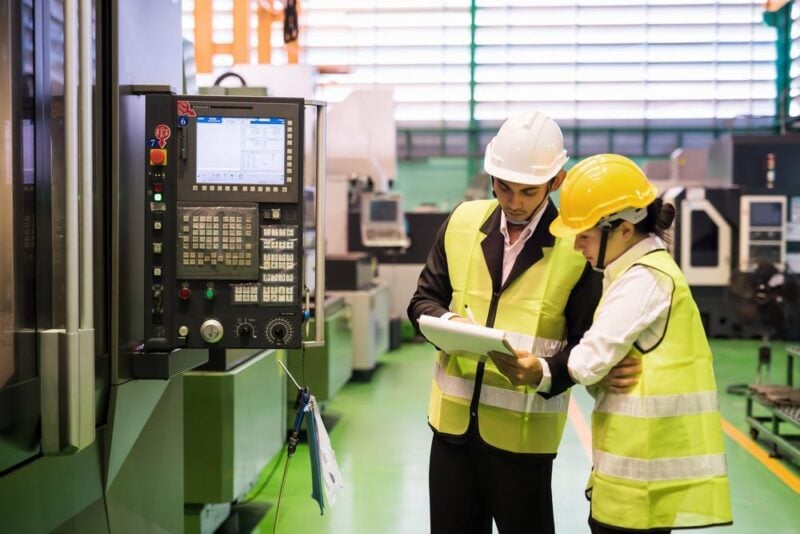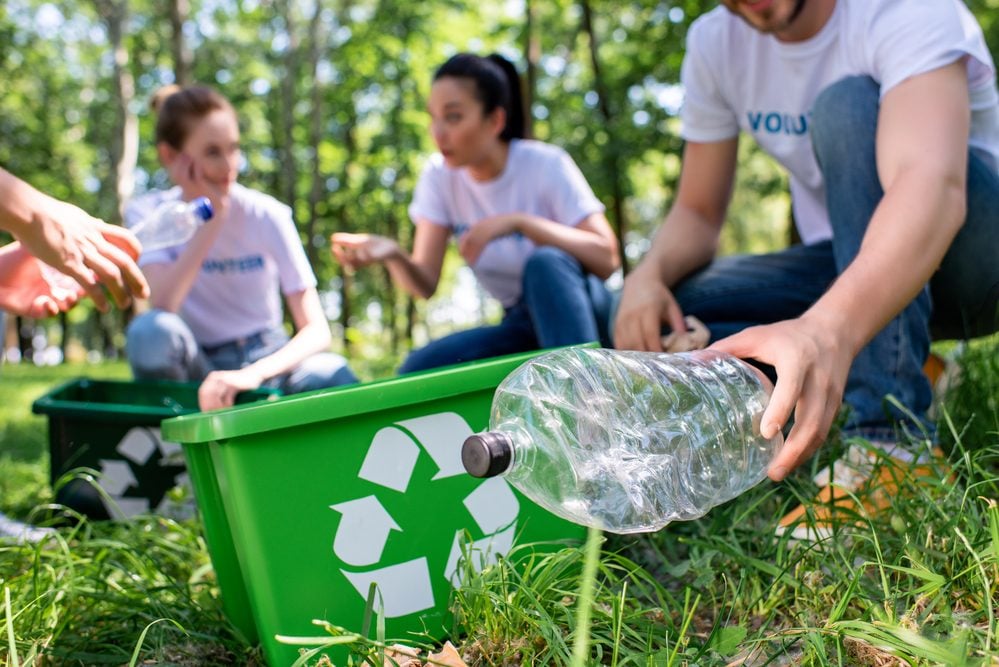
Accredited reports indicate that India produces approximately 900,000 tons of polyethylene terephthalate, a type of plastic, annually. The profit margin in this business is significantly high. The increasing profitability resulting from large-scale recycling operations has attracted a considerable number of business entrepreneurs to venture into this field.
If you’re considering pursuing this business as a career option, it’s important to have a good understanding of its operations, functions, and the required capital. Don’t assume that it’s only accessible to wealthy individuals given the wide range of opportunities it presents. You don’t have to necessarily jump into the realm of large-scale plastic recycling plants; instead, you can begin with a small-scale plastic recycling plant to initiate your business.
Before jumping into the plastic waste recycling business, you need to chalk out a well-thought plan and understand the vital factors you need to consider before entering the industry. A proper business plan helps in getting loan approved and invite other investors.
Here is the plastic waste recycling plant business plan that would ensure that you remain on track and focused:
Before venturing into the plastic recycling business, it’s crucial to create a well-planned strategy. As you are new to this business doing proper research would be of great help. You can divide the analysis into two parts, i.e., primary and secondary.
| Type | Name | Recommended |
| PET | Polyethylene Terephthalate | Yes |
| HDPE | High-Density Polyethylene | Yes |
| PVC | Polyvinyl Chloride | Not really |
| LDPE | Low-Density Polyethylene | Not Really |
| PP | Polypropylene | No |
| PS | Polystyrene or Styrofoam | No |
Consider the type of plastic you will recycle and understand the recycling process. Determine the scale of your operation and calculate the required investment for a plastic recycling plant in India. Procure necessary machinery and raw materials. Focus on collecting plastic and identify your target market for recycled products. Calculate profit margins and ensure your investment generates long-term returns. Lastly, prepare a feasibility report to assess the practical and economic viability of the business, providing insights into investments and returns.
Before commencing your recycling business, it is crucial to obtain the necessary licenses and permits from regulatory bodies, local governments, and environmental agencies. Failure to comply with regulations can lead to legal action due to the pollution associated with recycling activities. Register your business with the ROC and acquire a trade license from municipal authorities, pollution control boards, and fire authorities. By obtaining these permissions, you may be eligible for tax benefits for three years and secure a collateral-free loan of up to 2 crores from a bank.
Operating without proper legal permits is not permissible. Ensure that your plastic recycling business in India is registered with the ROC, holds a trade license from municipal authorities, and has certifications from the pollution control board and fire authorities, demonstrating adherence to safety protocols.
Here are the necessary licenses and permits for initiating a plastic recycling enterprise:
To begin, gather information on the specific machinery needed and conduct market research to identify reputable dealers who offer high-quality machinery at competitive prices along with additional service benefits. Prioritize sealing the deal with the dealer that offers the best prices and reliable technical support during emergencies. The scale of your operation will influence the machinery requirements and corresponding price fluctuations.
Focus on assessing the necessary machinery based on factors such as business size, budget, plastic type to be recycled, and desired end product. Opt for user-friendly, energy-efficient, and highly efficient machinery. Lastly, identify the supplier who offers superior quality, reasonable prices, and favorable service benefits for future support.
To start a low-cost plastic waste recycling business, it is crucial to identify the sources for raw materials and scrap as well as the points of sale after recycling. Many individuals in this industry reach out to rag pickers and local municipalities for assistance in obtaining raw materials. It is essential to document all acquired information in an Excel spreadsheet to determine the optimal sources for raw materials.
To ensure a consistent supply of plastic waste, it is necessary to establish contact with multiple plastic waste suppliers. Once the plastic waste is collected, the next step involves sorting the materials, specifically focusing on polyethylene terephthalate (PET) plastics.

To successfully carry out the recycling process, you will need both technical expertise and a workforce. Start by hiring a knowledgeable technician who is familiar with the machinery and the process of recycling plastic. You can initially hire the technician for a specific period and learn from their expertise to eventually handle the process on your own, which can help save costs.
Additionally, consider seeking guidance from experts or enrolling in a short course to enhance your understanding of recycling. It’s also essential to engage laborers who can assist you in completing the various tasks required for the recycling process. The number of laborers needed will depend on the scale of your recycling plant, whether it is small, medium, or large.
Furthermore, consider hiring professionals such as accountants, advisors, managers, and engineers to support your project. As a newcomer to the industry, having an advisor who can guide you through the recycling process efficiently is highly recommended. Aim to build a team that is versatile and capable of handling multiple responsibilities to ensure smooth operations.
The personnel needed to establish this plastic recycling venture include:
Additionally, it is crucial to provide comprehensive training to these employees in the following areas:
After conducting a thorough study for your business plan, you would have gained a good understanding of the financial requirements for starting your business. The amount of money needed will depend on factors such as the location you choose, the size of your business, the type of recycling plant, the scale of production, and whether the equipment is leased or self-owned.
Given the significant investment involved in setting up a plastic recycling plant, it is common to consider financing options such as taking a loan. The cost of establishing a factory can range from Rs 5 to Rs 10 lakhs, with an additional payment of at least Rs 3.5 lakhs and up to Rs 35 lakhs in the process of recycling.
Considering these factors, it is crucial to carefully evaluate the costs and develop a comprehensive financial plan to ensure the successful launch and operation of your plastic recycling business.
Creating a marketing plan is crucial for any business, including a plastic recycling plant, as it helps establish brand awareness and capture market share. Leveraging social media platforms can effectively promote the business while keeping costs low. It is also beneficial to engage with NGOs and volunteers to showcase the company’s commitment to social participation.
Allocating a specific budget for each marketing strategy allows for proper planning of other aspects of the business. Utilizing social media for promotion is highly recommended due to its cost-effectiveness and wide reach. Thus, incorporating these strategies into the marketing plan can help drive success for the plastic recycling plant.
Utilizing social media platforms to create engaging pages, organize contests, and generate interest, and publishing informative articles, blogs, and explanations that validate our recycling methods and practices – these are some of the advertisement strategies that will help you promote your business.
The demand for recycled plastic exists because it is cheaper than regular plastic. The market for recycled plastic depends on its grade, determining the potential customers. High-quality recycled plastic, obtained from a single recycling process, is used in the manufacturing of premium plastic products. Plastic that has been recycled multiple times is suitable for making plastic bottles.
The road department is a customer for low-quality recycled plastic, which they use in road construction alongside bitumen. Numerous examples show that roads have been successfully constructed using recycled plastic. To attract potential customers, you can provide product samples to other businesses involved in plastic manufacturing. If you offer good-quality recycled plastic at a reasonable price, customers will be interested in purchasing your product.
Some other consumer groups for this business are:

The machinery required for plastic waste recycling can vary depending on factors such as the desired quantity, quality, and end product specifications. However, here is a list of essential equipment commonly used in plastic recycling plants:
It’s important to note that the specific equipment and machinery required may vary depending on the scale and specific goals of a given plastic recycling operation.
The cost of setting up a plastic recycling plant in India depends on various factors, including:
To calculate the precise cost, one must consider all the required machinery and equipment. Saving money on land costs can be achieved by purchasing land on the outskirts rather than in the city center. Funding options include using personal savings or obtaining a loan from a bank or financial institution.
The initial investment for setting up the plant can range from Rs 5 to 10 lakhs, with an additional expenditure of at least Rs 3.5 lakhs to Rs 35 lakhs for machinery. It is important to prioritize good quality machinery to ensure efficient production and high-quality end products. Ongoing expenses vary based on the scale of the business and may range from Rs 1 to 2 lakhs per month, excluding unexpected costs and faults. Labor and technician costs should also be considered, along with the purchase of plastic raw materials, which can amount to Rs 25,000 to 50,000 per month.
Other costs to include are transportation, marketing, grading, manufacturing, and packaging. Overall, the total investment required for starting a plastic recycling plant in India is around Rs 10 to 50 lakhs, depending on the size of the plant. It is recommended to explore options for business loans and subsidies through MSME’s PMEGP scheme and approach banks for financing. Monthly ongoing expenses consist of purchasing plastic scrap, labor salaries, utility bills, plant rent, and transportation costs.

Starting a plastic recycling plant requires a significant initial investment, making it challenging to generate substantial profits in the early stages. However, one can finance the investment by obtaining a loan. The profitability increases as the investment costs are reduced. Another approach to boosting profits is venturing into the manufacturing of new products using recycled plastic. This includes a wide range of items like polythene bags, plastic bottles, boxes, containers, plates, spoons, forks, and more.
The market for finished recycled products is vast, and these items are priced competitively compared to fresh plastic alternatives. Due to their affordability, they enjoy higher demand from customers, resulting in increased sales. Moreover, recycled plastic products are known for their durability, which further attracts buyers. Although the initial returns may not be significant due to the high investment, minimizing costs can lead to improved profit margins.
To further enhance profits, selling recycled plastic to distributors, contractors, or manufacturers can be a lucrative strategy. These entities are willing to pay a good amount for recycled plastic, thereby increasing the overall net profit. By adopting these approaches, a plastic recycling plant can optimize its return on investment (ROI) and establish a sustainable business model. A profit margin of 20%-60% can be expected. You can earn profits up to Rs 60K per month for each ton of recycled plastic.
| Type of Granules | Selling Price | Recommendation |
| ABS Plastic Granules | 45-110 | Yes |
| PP Raffia Granules | 40-120 | No |
| Black Plastic Granules | 68-130 | No |
| PP Black Granules | 45-60 | No |
| White Plastic Granules | 45-80 | Yes |
| LDPE Recycled Plastic Granules | 35-80 | Yes |
| Natural Polypropylene Granules | 76-85 | No |
| PVC Plastic Granules | 70-120 | Yes |
| HD Plastic Granules | 60-100 | Yes |
| White PPCP Granules | 80-100 | Yes |
| Black Reprocessed ABS Plastic Granules | 57-90 | No |
| Natural LD Plastic Granules | 60-80 | No |
| Recycled Granules | 55-96 | No |
| PP Granules | 46-120 | Yes |
| Yellow Recycled Plastic Granules | 90-150 | No |
| HDPE Plastic Granules | 60-120 | Yes |
| Yellow Reprocessed ABS Plastic Granules | 80-133 | No |
| Colored Granules | 39-76 | No |
| Plastic Semi-fresh Granules | 69-90 | No |
| Reprocessed Plastic Granules | 54-80 | No |
| HIPS Plastic Reprocessed Granules | 80-120 | Yes |
Putting all the data together, setting up the plastic waste recycling plant is a sure-shot business idea to start right now. If you have the investment power and want to earn a good return on investment, do not think much! Remember, this industry has a massive market.
Today, even the roads are getting constructed with plastic waste; you can contact the road contractors and supply them with the plastic waste in a decent amount of money, which they will happily purchase.
There are several compelling reasons to consider seizing this business opportunity in plastic recycling.
To summarize, the vast availability of raw materials, low investment requirements, increasing consumer preference for recycled plastics, modest space requirements, and the potential to cater to the sustainability needs of major corporations all make this business opportunity in plastic recycling highly promising.
Also, the products made from recycled plastic have a vast market. It is solely because these products are enriched with robust quality and are highly durable.
There is no risk involved as the business is feasible and sustainable and has a comprehensive scope in the long run. It can turn out to be an astonishing money-making model if you will invest your time and money.
In conclusion, establishing a plastic waste recycling plant presents a viable and profitable business opportunity. The demand for plastic recycling is growing, and with a well-designed business plan, this venture holds significant potential for success. By effectively managing the cost of machinery, labor, and raw materials, while implementing efficient recycling processes, entrepreneurs can contribute to environmental sustainability while earning high profits.

Sushma is an expert in online money-making strategies with extensive experience in business. She has spent a lot of time researching and writing about the ever-changing world of money-making games and websites, making her an expert at finding ways to make money online.
There is a company named RECYCLEAN who provides consultation in setting up such plants. These guys doesn’t leave any stone unturned.